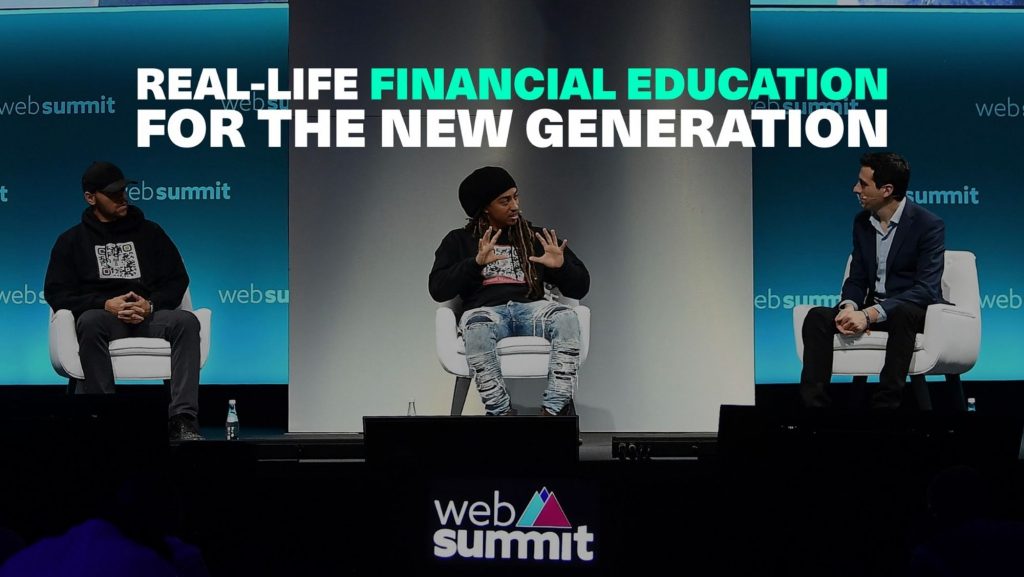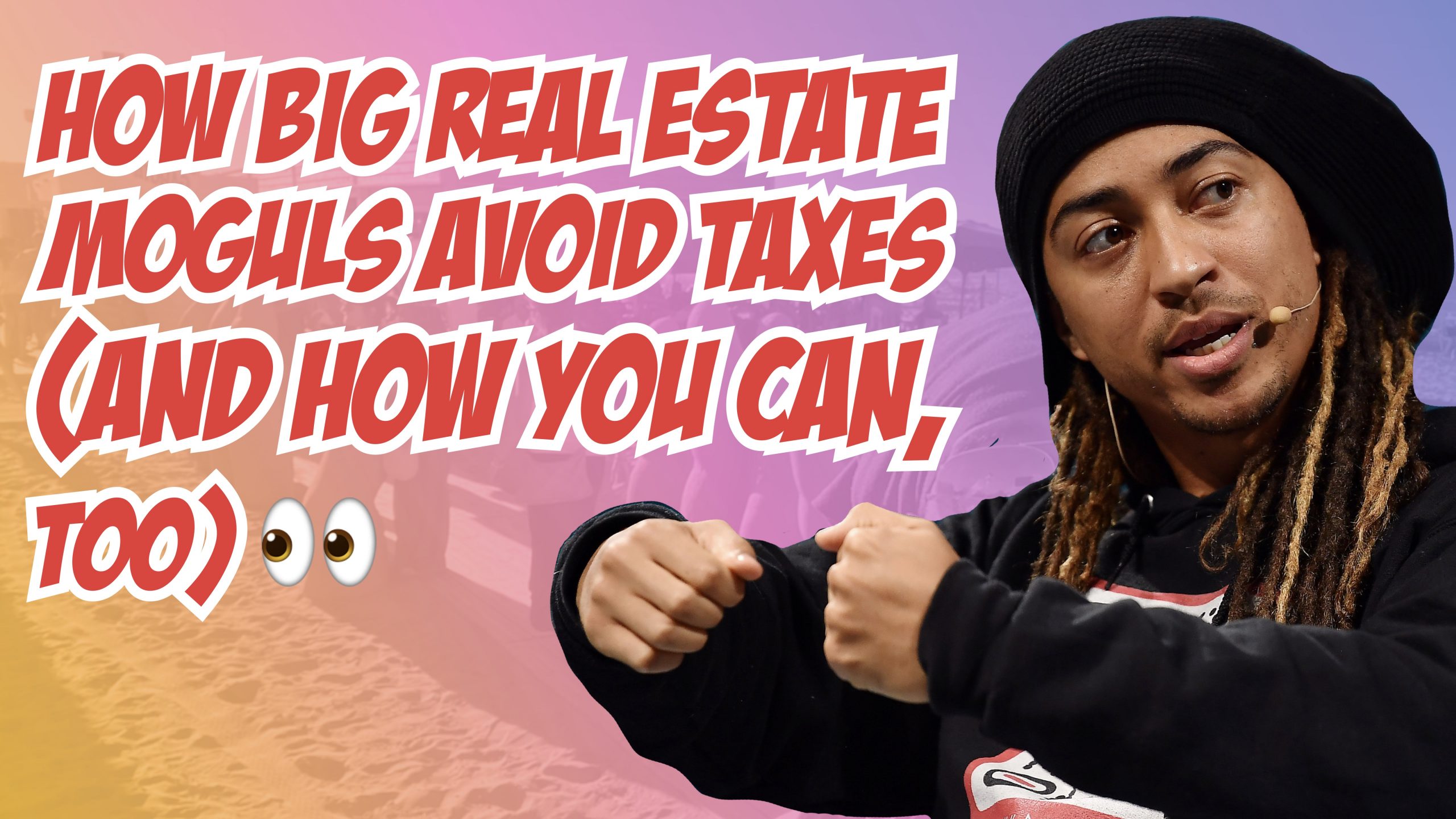Entrepreneurs
Exclusive Q&A, Part II: ‘The Movement That Changed The Narrative Of Black People In America’
Published
6 years agoon

In the Part I of this interview, we sat down with four ex-roommates who built one of the fastest-growing Instagram accounts on the internet. But there’s more to the quartet than going viral.
“We want this to go down in history as the movement that changed the narrative of Black people in America,” Jared Spiller, one of the co-founders, said in Part I.
We’re of course talking about the founders of @BlackWealthRenaissance.
Ex-roommates in college, Jalen Clark, David Bellard, Jared Spiller and Kelly Rhodes started this as a passion project; they’ve since grown this 209K+ followers in about a year, with one of the most engaging audience on the ‘Gram.
In part II of this Q&A, the four co-founders expound on their mission to change the “narrative of Black people in America,” why social media is important and what lies ahead.
(Editor’s note: This interview was done by WealthLAB editor-in-chief/real estate developer Philip Michael.)
How are you using social media — and why?
David: We mostly are using social media to build a platform that we feel is needed to highlight the people in our culture showing that what we are talking about is real—and attainable—if you are willing to put the work in.
Why does this work?
I feel like it’s been effective because it provides a mix of motivation, education, and culture in a way that is true to the message of normalizing black wealth and the conversations around building wealth.
As one of our friends told us its like The Shade Room but for financial literacy. (Laughs.)
I can see that! What say you, Kelly?
Kelly: Social media to me is not just an app, it’s a powerful tool that we can use to help network with people across the globe. I think for Black Wealth Renaissance we really started to grow when we used videos, because our videos consisted of people that are looked at as wise in the African American community such as Jay-Z, Oprah, and Will Smith.
This helped people relate because its someone that looks like them and someone coming from similar background who we deem as financially successful. It allows African Americans to dream which turns into goals motivating us to achieve similar success.
And that’s so much easier to spread on IG, I take it?
Jalen: We are using social media the way it was created and intended to be used. We are networking across the country and globe with people we would never had the opportunity to meet if it were not for social media. We are using it to spread positive messages and show the masses what is actually possible with self control and will power.
We are also shining light on parts of the culture the media does not shine light on. We are showing [black] entertainers that are doing work within their communities; that are giving back and making a difference for those that have less.
We are able to mix personal finance tips with memes and topics that are related to the average person thats the reason I believe it has been effective.
You guys talk about real estate quite a bit; that’s how I found your channel. So why real estate in the wealth-generation conversation?
David: We’ve all heard the quote that 90% of millionaires were created through real estate and one of our main focuses is generating wealth for future generations. So real estate is something we promote because it is one of the best ways to accomplish those goals. There are so many different ways to get in and win in real estate, it really all goes back to an abundance mindset.
Love that. I talk about that all the time. Wealth is really a mindset more so than a “tactic” that will work for you. That said, real estate is the pillar of every millionaire and billionaire’s portfolio.
Kelly: Yes, most millionaires own some part, or have some stake in real estate. Real estate is relatable to most people because everyone has a home whether you are renting or actually own your own home you can relate.
In my opinion, if 90% of millionaires made their money in the stock market it wouldn’t be as popular as real estate because it’s not something that your every-day person would be able to relate to.
Real estate is something everyone is already apart of and owning property could be as simple as owning your own home. Plus there is thousands of ways to make deals and structure deals to get into real estate.
Jalen: Real Estate has always been something in my mind as a young child. I wanted to own land for some reason but once we realized the benefits and advantages of owning real estate, it was solidified that this is something we need to do.
What are the benefits to real estate, in your opinion?
Jalen: Land is not being produced anymore so it’s going to constantly appreciate over time. There’s tax advantages to owning land. Lastly real estate is the foundation to building and creating wealth it’s not the end all be all but it definitely gives you the freedom to start focusing on different streams of income.
What’s the main thing you’d like to change and/or impact with BWR?
David: I would like to change black people’s perception of wealth and understanding of money—the process of acquiring it. From my experience, too many of us sum it up to a person “getting lucky”—and that’s just not the case.
By understanding the principles used to acquire wealth, we can spark a necessary change in our community. It has been predicted that the net worth of the black family is expected to be $0 by 2053.
And that racial wealth gap really comes from not owning real estate.
Yes. And that’s in my lifetime. So I want to do everything in my power to ensure that this doesn’t happen—and the best way to accomplish that is through education.
One of our major goals is to teach financial literacy to the youth so that they can avoid some of the pitfalls and mistakes that we’ve made on our own journeys.
Kelly: I would like for Black Wealth Renaissance to change, or at least create a movement, on a mindset that black people can actually achieve financial success without rap or going to the [NBA]. I want African Americans to understand that it’s OK to be an entrepreneur—and that you can become very successful doing it.
I just want at least one person to say hey those guys at Black Wealth Renaissance changed my perspective on money and I actually learned how to become financially literate. That in my opinion would be my ultimate success.
You, Jalen? What do you want to impact?
Jalen: One thing I would like to change or impact in my life time is the idea that the only way to obtain wealth with in our community is through becoming an athlete, a rapper, a drug dealer or anything else we have been stereotyped for.
I also want us to love and embrace our communities; we need to respect and take pride in where we are from. There’s no reason the “hood” should look run down. Just because we are not getting funding from the government does not mean we have to live in the worst possible conditions. We need to “beautify” and keep our neighbors clean.
I want to impose the will and spirit of self love within our community and teach our people how to love one another with compassion.
Entrepreneurs
The Top 10 Investment Opportunities To Capitalize On During A Recession
Published
3 years agoon
May 5, 2023
A recession can be a challenging time, but it can also present opportunities for investors to make smart investment decisions.
During a recession, certain industries tend to perform better than others, and identifying these opportunities can be the key to success.
Here are the top 10 investment opportunities to capitalize on during a recession:
1. Defensive Stocks
Defensive stocks are those that tend to perform well EVEN during economic downturns.
These include companies that provide essential goods and services, such as healthcare, utilities, and consumer staples.
Defensive stocks may not offer the highest returns, but they can provide stability and protection during a recession.
Defensive stocks include Johnson & Johnson, Procter & Gamble, PepsiCo, and Walmart, among others. (You can buy them all inside the NYCE app.)
2. Gold
Gold is often seen as a safe haven during times of economic uncertainty.
As a tangible asset, it can provide a hedge against inflation and currency fluctuations. During a recession, the price of gold may rise as investors seek a safe haven for their money.
READ: 3 Ways To Invest In Gold (In 3 Minutes Or Less)
3. Real Estate
Real estate can be a good investment opportunity during a recession. Especially if you are looking for a long-term investment. (Hence why NYCE exists.)
While property values may dip during a recession, they tend to recover over time. In addition, rental properties can provide a steady stream of income, even during a recession.
After all: Real estate has created more millionaires than any other asset class.
4. High-Quality Bonds
High-quality bonds, such as U.S. Treasury bonds, can be a safe investment during a recession.
These bonds are backed by the full faith and credit of the U.S. government, which makes them less risky than other types of bonds. (Though this has become less safe today than in the past.)
They may not offer the highest returns, but they can provide stability and protection during a recession.
5. Consumer Discretionary Stocks
Consumer discretionary stocks are those that are tied to consumer spending, such as retail, travel, and entertainment companies.
During a recession, these stocks may suffer as consumers cut back on non-essential spending.
However, if you believe that the economy will recover, investing in consumer discretionary stocks can be a good bet.
6. Healthcare Stocks
Healthcare stocks tend to perform well even during economic downturns, as people still need healthcare services regardless of the state of the economy.
In addition, the aging population in many countries is driving demand for healthcare services, which can provide long-term growth opportunities for investors.
7. Technology Stocks
Technology stocks can be a good investment opportunity during a recession, as many companies in this sector have strong balance sheets and cash reserves.
In addition, the shift towards remote work and online shopping during the pandemic has increased demand for technology products and services.
8. Emerging Markets
Emerging markets can be a good investment opportunity during a recession, as these countries may be less affected by the economic downturn than developed countries.
In addition, emerging markets often have higher growth rates than developed countries, which can provide long-term growth opportunities for investors.
9. Dividend Stocks
Dividend stocks can be a good investment opportunity during a recession, as they provide a steady stream of income even during tough economic times.
Look for companies with a history of paying dividends and a strong balance sheet.
10. Cash
Finally, cash can be a good investment during a recession, as it provides flexibility and liquidity. Having cash on hand can allow you to take advantage of investment opportunities as they arise.
In conclusion, while a recession can be a challenging time for investors, it can also present opportunities for smart investment decisions.
By identifying the top investment opportunities during a recession, you can position yourself for long-term success.
Entrepreneurs
From Zero to Millionaire: How 9-5 Marketing Guy Made A Fortune Selling Pet Rocks As A Joke (1)
Published
3 years agoon
April 26, 2023
No BS—this is actually a real story.
The pet rock—a seemingly ridiculous idea—became a sensation and made its creator, Gary Dahl, a millionaire in the 1970s.
Dahl, a marketing executive, came up with the idea as a joke during a conversation with friends.
He packaged rocks in a cardboard box with holes and called them “pet rocks,” complete with an instruction manual on how to care for them.
There was virtually no upfront investment, as the rocks themselves were free, and the packaging was inexpensive.
“It was a joke,” Dahl told ABC News years later. “It was a satire. It was fun. And it became an overnight success.”
The pet rocks became an instant hit, with Dahl selling over a million of them in six months.
LEARN: How to build a $100K side hustle in 1 hour.
He appeared on popular TV shows and even wrote a book about his success. The pet rock craze died down after a year, but Dahl had already made his fortune.
After the pet rock craze died down, Gary Dahl continued to work in marketing and advertising.
He also tried to launch other novelty products, such as “sand-breeding kits” and “mood rings,” but none of them achieved the same level of success as the pet rock.
“I think that’s one of the things that is wrong with business today. People are so serious, they forget to have fun,” Gary Dahl said.
The success of the pet rock shows that sometimes the most unconventional ideas can lead to great success.
Case Study: How A $49 Investment Could Make You $100K+ In 6 Months
Why Gary’s story matters to you…
The story of Gary Dahl and his pet rock is a testament to the power of thinking outside the box. Sometimes, it’s the seemingly ridiculous ideas that can lead to the biggest successes.
Dahl’s story is not only inspiring, but it’s also a reminder to keep a sense of humor and not take ourselves too seriously.
In business, it’s easy to get bogged down in strategy and analysis, but we should never forget the importance of creativity and fun.
The success of the pet rock is also a lesson in the power of marketing.
Dahl’s packaging and instruction manual turned a simple rock into a desirable product. It’s a reminder that sometimes it’s not the product itself that’s important, but how it’s presented to the world.
So if you’re feeling stuck in your business or just need a little inspiration, take a cue from Gary Dahl and his pet rock.
Keep an open mind, don’t be afraid to take risks, and don’t forget to have a little fun along the way.
Who knows…you might just come up with the next big thing.
About author:
wealthlab is a platform for hustlers, doers, entrepreneurs and investors to do epic s&%. Our mission is to create 100M new investors worldwide. Join our academy here.*
Don’t miss:
- ‘I work just 2 hours a day’: A 24-year-old who makes $8,000 a month in passive income shares her best business advice
- This 38-year-old makes $160,000 per month in passive income—after losing his job: ‘I work only 5 hours a week now’
- This 33-year-old mom makes $760,000 a year in passive income—and lives on a sailboat: ‘I work just 10 hours a week’
Sign up now: Learn how to retire with $1M with our wealth academy.
Business
How Big Real Estate Moguls Avoid Taxes (And How You Can, Too) 👀
Published
3 years agoon
August 25, 2022
I was looking around Google for an old article on tax strategies and this five-year old video of myself happened to pop up.
I’m interviewing a tax expert about how real estate investors avoid paying taxes in perpetuity—AND how everyday citizens can do the same thing.
(Real estate—our TEMPLE I and TEMPLE II projects included—has a number of tax benefits savvy investors have capitalized on for years, including Opportunity Zone breaks and 10-year tax abatements.)
There’s the 1031 exchange, of course, which I’ve shared with you guys before.
Just to refresh your memory, the 1031 Exchange allows you to roll over gains from your last project into a new property TAX FREE—as long as said property is worth the same or more.
But there’s ANOTHER TAX LOOPHOLE that can take your portfolio to an entirely new level by splitting your capital gains into MULTIPLE properties.
So I thought I’d share it with you guys. 💎
You can check it out here.
Let me know what you think. 😎
PS: In our next update, I’m going to break down how real estate moguls get paid from their properties…tax free. 👀
PPS: If you want to learn how to implement generational wealth strategies like this one, you can join our NYCE wealth academy (TRIBE U) here.
Top 5 Best Investment Strategies To Survive A Recession
The Top 10 Investment Opportunities To Capitalize On During A Recession
3 Gold Mining Stocks To Buy Today 📲
Ad 1
Trending

You’ve reached your free article limit.
Continue reading by subscribing.
Already a subsciber? Login >
Go back to Homepage >




